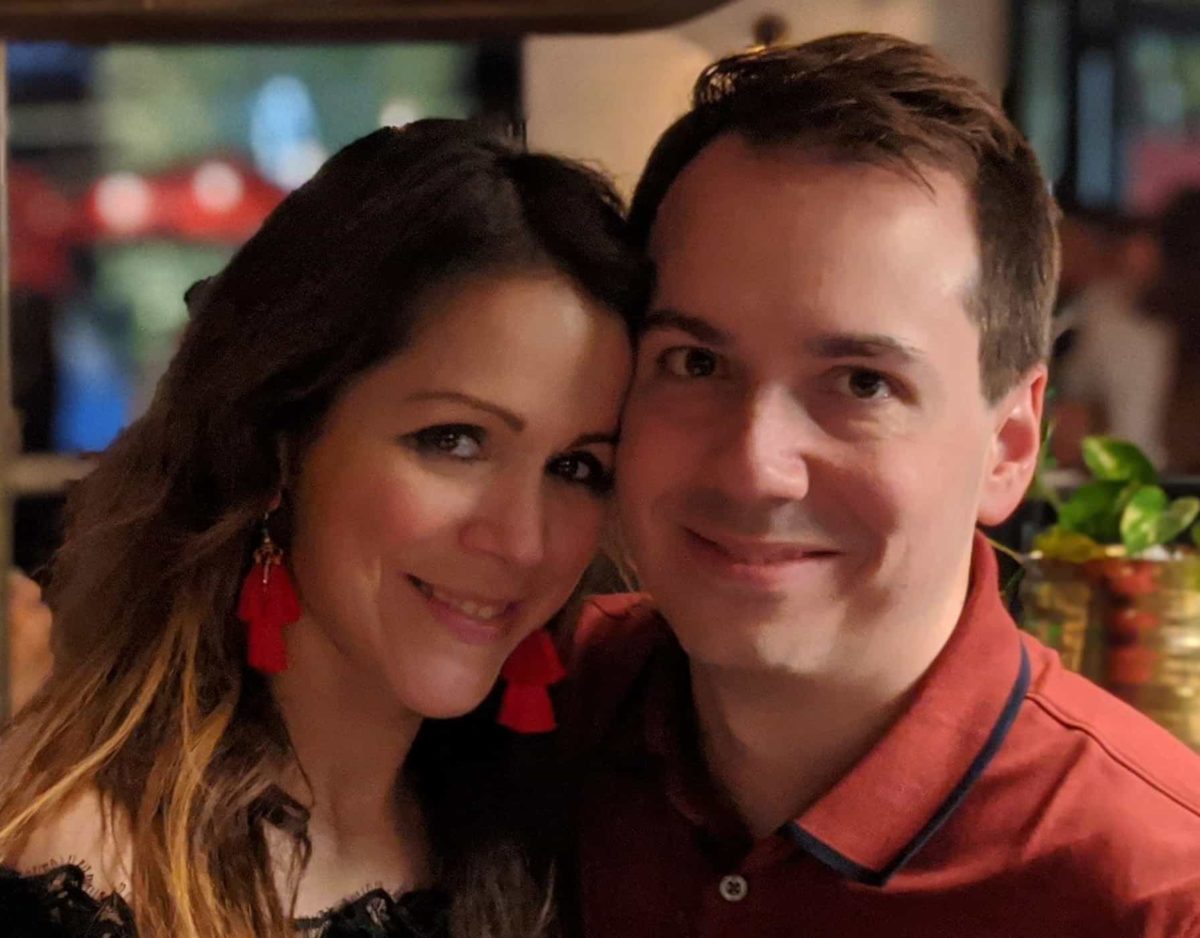The other day I was reading an article on trading, consumed with curiosity as to how a few people apparently manage to make good money doing it. The piece talked about having a strategy and all, but that’s not what really caught my attention. It’s what it said about why, if trading works, it’s not infinitely scalable. After all, if you can follow a strategy and make $100,000, why not just apply more money and make $1,000,000?
One of the reasons it said you can’t necessarily do that is a concept I found fascinating: the personal ceiling or personal limit. I got to thinking about it, and have come to believe there’s a lot to learn and expand on. Here’s my take on it.
What Is A Personal Limit?
As I’m defining it, a personal limit is a level of achievement at which you stop. It can be a good thing or a bad thing, depending on the reason for it.
For instance, it can be great because you have amassed enough money (or power or whatever you seek), and don’t want to work more hours and be away from your family. You’re happy and comfortable; it’s a good limit that you chose yourself.
On the other hand, you may need to stop working because you got sick. That’s a bad limit that life chose for you.
And then there’s what may be the worst kind of limit: the one that you didn’t want, and that you got because others imposed it on you or because, truly, you imposed it on yourself. That’s what I really want to talk about: how to recognize and breach unwanted personal limits that don’t need to be there. So let’s start by considering the different kinds of limits.
The Absolute Limit
Suppose I win the Powerball tomorrow and never have to worry about money again. I decide to devote myself to basketball, all day, every day.
I will never be as good as LeBron James, no matter how hard I try. I’m 5’11 and 34 years old, and have never really played basketball.
That is an absolute limit. There is nothing I can do to reach or breach it, even if I can dramatically improve at basketball.
The Imposed Limit
This is the limit that someone else imposes on us or, more often, we impose on ourselves, whether we realize it or not.
Take limits imposed on us by other people. Say there’s a young genius somewhere who decides he wants to run for President of the United States. Even if he can win the election, he cannot be President unless he is 35 years old, because the Constitution says you must be 35 to be President (Art. II, Sec. 5). That’s a legal limit, which is insurmountable unless he’s Captain America and can push through a constitutional amendment.
But then there are false limits that are imposed by other people. Think of Harry Potter author J.K. Rowling, whose original Harry Potter manuscript was rejected by twelve different publishers before one finally accepted it. Or Lady Gaga, who was dropped by her first record label after three months. Or every one of us that has been told by someone else that we’re not good enough.
Those limits are initially imposed by others, but are not necessarily real. They can be – if I tell a basketball coach I want to be the next LeBron and he tells me it’s not happening, he’s right. But many times those limits are not real, and only become real because we accept them and impose them on ourselves.
So how do we find out? By pushing up against them, relentlessly.
“Time and Pressure”
In the movie The Shawshank Redemption, Andy escapes from prison by tunneling through the walls with a handheld chisel. It took him close to 20 years. But he did it, little by little, with “time and pressure”:
And this is how I think we find out where our limits are – when we are passionate about something, we have to apply time and pressure, relentlessly and without seeing the end. It’s about having faith that we’ll get there.
And it’s true, not everyone gets there. But everyone that gives it their all finds out where their limits really are, and never looks back on life wondering “what if”. If J.K. Rowling had never sent in that thirteenth manuscript, the world might not know Harry Potter. The twelve prior rejections were twelve false, imposed ceilings. If she had stopped at number twelve, that would have been her personal limit, but it would have been self-imposed, even if she didn’t know it.
So that’s how I believe we should pursue our passions. Always keep looking for a next step we can take; always keep thinking how we can do better; always keep at it.
It even applies to things we may think are absolute ceilings. We’re human; we can’t fly and we can’t breathe underwater.
But we can invent airplanes and submarines. And that’s where some of our most important qualities come into play: intellect, will, perseverance. These and other mental qualities don’t have clear limitations, and have far more room for improvement than physical ones. And again, the only way to find out is to keep trying to breach those barriers.
This will not only show you what you’re made of and what you’re capable of, but will, just as importantly, give you freedom. The freedom to decide what is enough, what makes you happy, when you want to stop. That’s when you reach the best kind of limit – your deliberate limit.
The Deliberate Limit
This is the personal limit that you set, having options and of your own free will. You’ve reached this level and can go further, but are happy and decide to stay here for a good reason. Maybe because the costs of going further are not worth it to you; perhaps you have kids and don’t want to extend your work hours because it would mean spending less time with them. Or maybe you have other passions and want to pursue those. Or you simply feel like you have enough. For any reason, you’ve made your free choice to stand at this level, and live happily.
It’s directly the opposite of the imposed personal limit. You’re not stopping because someone is holding you down or because you did not overcome your fears or any other internal obstacle. On the contrary, you’ve liberated yourself from all that, and decided that this is your spot.
Of course, this is hard. Pushing through obstacles, fear, and exhaustion is tough and takes an iron will, and then some more. But I think most of us remember a time we’ve done it, and know that the resulting feeling of satisfaction and achievement has no equal. It brings us joy and the freedom to choose the next step. And I think it’s one of the most profound experiences we can have.
Personal Limits and Personal Finance
Going back to the trading article, chosen personal limits can be one of the reasons you can decide to stay at a level of wealth, rather than moving to the next one. There’s nothing wrong with wanting mansions and yachts – but do you want to pay the cost? If it means working 80 hours per week or travelling every few days, is it worth it? I don’t know – I think it’s different for everyone, and maybe it’s worth it to some people and not worth it to others.
But that’s the thing: you are the one who decides if it’s worth it for you. You’ve broken through your own obstacles and those that others put in your way, and made your own free decision. So you are at that level not because you didn’t want to find the best of yourself, but because you did and chose to be happy at that point. And I think that may be the ultimate manifestation of personal freedom.
I found the concept of personal ceiling on this post at Vantage Point Trading. This article is my expansion, development, and modification of that idea.





Miguel, Good article for this goal setting/resolution setting time of year. Thanks for putting it together. Tom
Thanks Tom! And thank you so much for reading 🙂
Muy interesante y cierto. Buena perspectiva. Me gusta mucho tu estilo de redacción!!!
Muchísimas gracias Lázara!
Feliz año nuevo,
Miguel
Thanks for this. The deliberate limit is an important concept. So many of us strive to do too much. And we can have trouble deliberately choosing to put the brakes on something that’s getting in the way of our happiness. It could be very liberating as you mentioned.
Happy new year!
Thanks, and happy new year to you as well!
I think it’s about freely choosing that stopping point. If done for the right reasons, then I believe it could be a part of the way to happiness.
It’s true that we need to set reasonable goals and only we can determine what those should be. By doing that, we are able to practically achieve them. I don’t like setting crazy high goals all the time because you can easily lose motivation.
Hey SMM!
I agree, and think it varies by person. For me, any high goals are best achievable by breaking them down into many realistic sub-goals, and then working towards those. I think human potential knows few limits, but it’s most realistic to rise one step at a time.